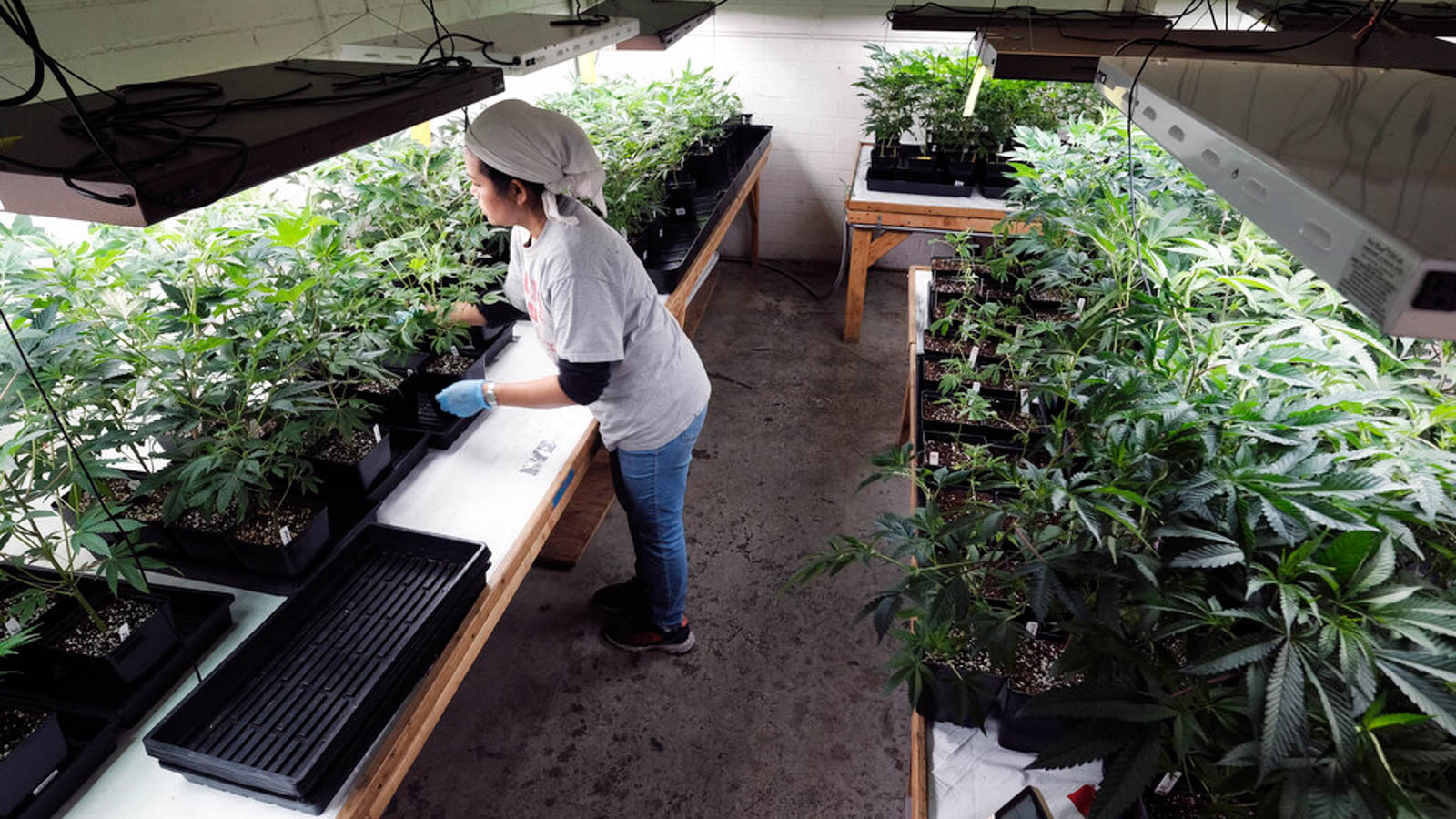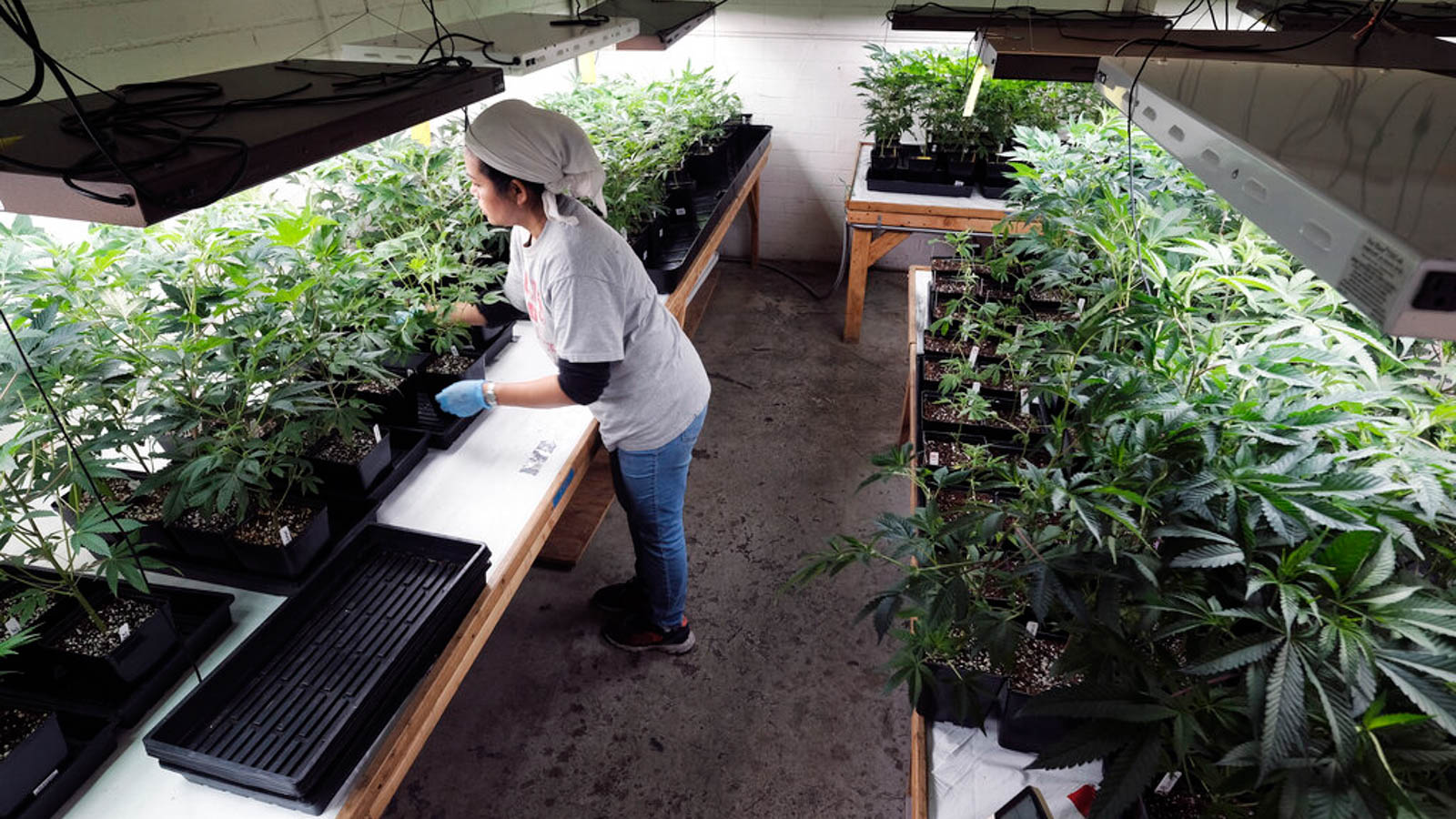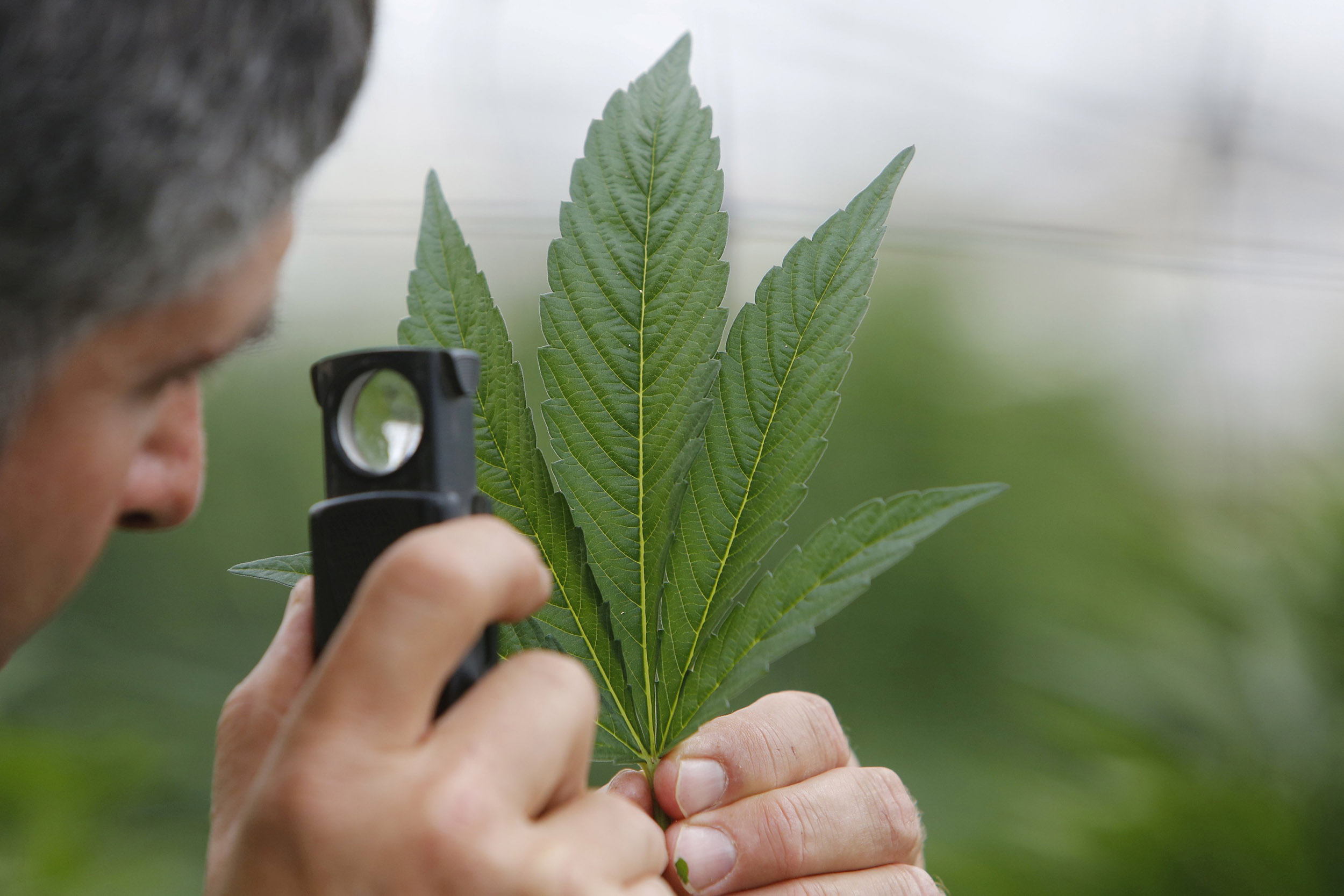
The California Senate on April 4, 2019, moved to close a licensing gap for state marijuana growers, the latest problem to bedevil the shaky legal marketplace.
Scores of cannabis cultivators have seen their temporary licenses expire before the state has been able to replace them. Companies caught in that backlog have been stranded in a legal lurch — technically unable to do business in the legal marijuana economy.
Voting 32-4 without debate, the Senate passed a bill that would allow the state to extend those temporary licenses until replacements are approved.
The bill now goes to the Assembly, where it is expected to pass.
Without a fix, Democratic California Sen. Mike McGuire said 6,900 temporary growing licenses would expire by July 2019. In March 2019 alone, more than 1,000 of those licenses will expire.
Vendors in this 2018 photo from MF Extracts participate in Kushstock 6.5 festival in Adelanto Calif. Scores of cannabis cultivators have seen their temporary licenses expire before the state has been able to replace them, but the California Senate aims to close a licensing gap. (AP Photo/Richard Vogel)
The bill’s sponsor, Democratic state Sen. Mike McGuire, warned that growers marooned without valid licenses could fall into the illicit market through no fault of their own. He said the proposal will create a short-term bridge “to avoid an impending crisis.”
Democratic state Sen. Mike McGuire warned that growers marooned without valid licenses could fall into the illicit market through no fault of their own. Click To Tweet
Meanwhile, state regulators also have taken steps to ease the problem, authorizing the issuance of provisional licenses in certain cases to close the gap.
The state’s licensing process for the industry has been clunky from the start, in part because public officials and regulators were given so little time to create it.
Broad legal sales kicked off in January 2018, a little more than a year after voters approved Proposition 64 to allow adult-use marijuana sales. Regulators faced the daunting task of transforming California’s long-standing illegal and medicinal marijuana markets into a unified, multibillion-dollar industry.
A Cambodian worker and other immigrant women trim marijuana flowers at the Loving Kindness Farms in Gardena, Calif. (AP Photo/Richard Vogel)
Initially, marijuana businesses were issued only temporary licenses. Those are now being replaced with annual licenses, but the transition has been slow and created bottlenecks that left some growers without valid licenses.
The state, meanwhile, has been sending menacing letters to businesses whose temporary licenses expire, warning them to cease activity “immediately.”
Without a fix, McGuire said 6,900 temporary growing licenses would expire by July 2019. In March 2019 alone, more than 1,000 of those licenses will expire.
In a statement, Lindsay Robinson, executive director of the California Cannabis Industry Association, said the bill is “critical … for stabilizing the regulated cannabis industry.”
California‘s step into the legal marijuana economy has had mixed results.
The illicit market continues to flourish, undercutting legal sales. Businesses say hefty taxes that can approach 50 percent in some areas are driving consumers underground. And a promised state tax windfall has yet to arrive.
— Michael R. Blood, with Associated Press Writer Don Thompson
Featured Image: A grower at Loving Kindness Farms attends to a crop of young marijuana plants in Gardena, Calif. The California Senate on April 4, 2019, moved to close a licensing gap for state marijuana growers. (AP Photo/Richard Vogel, File)















